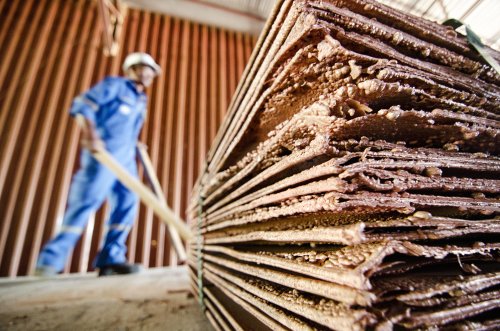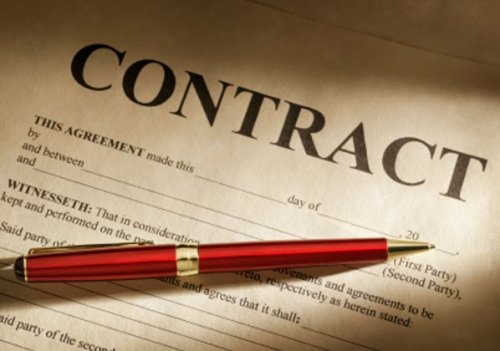How do I start my own business in Laos?
Attempting to start a business in Laos can be a little daunting, however there is a basic structure and process to follow. Laos is considered one of the most difficult countries in the world in which to start a business, due to the time between lodging an application and receiving all your necessary paperwork. However, as we can see all around us, companies do get established, and more and more investors are coming here to do business.
One issue that should be kept in mind is that some industries are actually closed to foreign investment, so if you are thinking of starting a business here it is best to find out if you are able to invest in your chosen industry before you spend a great deal of time, money and heartache attempting to do something that you cannot actually do.
Company Structures in Laos
For investors who are new to Laos, finding out what company structures are possible and suitable for your investment can be very confusing.
In brief, there are two options for your investment under Lao law: establishing a Representative Office or establishing a Limited Company.
Representative Office
A Representative Office represents a legal entity registered in another country, where that foreign entity wants to have a formal, recognised presence in Laos to collect data on investment opportunities and/or ensure coordination between the relevant Ministries of the Lao government with the head office of the company overseas.
 The term of a Representative Office is one year and this can be extended twice, giving a total term of three years, unless the head office of the Representative Office has a Memorandum of Understanding (MOU) or agreement signed with the Lao government to investigate and collect specific data for a project for a longer period of time. The term of the Representative Office can then be extended in accordance with the validity of the MOU or agreement signed with the Lao Government.
The term of a Representative Office is one year and this can be extended twice, giving a total term of three years, unless the head office of the Representative Office has a Memorandum of Understanding (MOU) or agreement signed with the Lao government to investigate and collect specific data for a project for a longer period of time. The term of the Representative Office can then be extended in accordance with the validity of the MOU or agreement signed with the Lao Government.
A Representative Office may undertake the following activities:
- Collect data and conduct feasibility studies for potential investment;
- Be the focal point within Laos for the head office of the company;
- Monitor the implementation of any MOU or agreement between the head office and the Lao government;
- If the Representative Office has signed a Memorandum of Understanding or agreement with the Lao government it may enjoy tax incentives for importing equipment in the form of machinery and vehicles for the specific purposes as stipulated in the MOU or agreement.
A Representative Office does not function in the way that a regular Limited Company can, and in particular is not allowed to conduct the following activities:
- Carry out commercial activities.
- Generate income.
Limited Company
The Limited Company is the company structure that is used by almost all foreign direct investment in Laos, whether the Limited Company is 100% foreign owned or has a Lao partner.
Lao law provides the following rights and benefits to foreign investors:
- To receive protection for their investment under Lao laws, including in Lao courts.
- Multiple entry business visas for investors and their families, linked to the investment.
- To receive protection of their intellectual property under Lao laws.
- To repatriate profits, capital and other income after the full payment of duties, taxes and other fees in accordance with Lao laws.
- To open Kip accounts and foreign currency accounts with banks located in Laos.
Both Representative Office and Limited Company structures have their benefits and advantages, depending on what you intend to achieve in the Lao PDR.
Documents to provide to the Lao Government when applying to register a Limited Company
The Government requires various documents as part of the overall ‘package’ to be submitted to it. Below is a brief list of various documents required to register a Limited Company. This list is not exhaustive and not all of these documents will be required in  every scenario. The Government requires documents to be lodged in the Lao language, but many foreign investors choose to have these documents in English as well (or whichever other language is preferred in their particular scenario). Obviously it is desirable that any investors understand the documents they are signing, which makes it desirable to have at least a Lao language version and one other language version of all documents lodged with the Government.
every scenario. The Government requires documents to be lodged in the Lao language, but many foreign investors choose to have these documents in English as well (or whichever other language is preferred in their particular scenario). Obviously it is desirable that any investors understand the documents they are signing, which makes it desirable to have at least a Lao language version and one other language version of all documents lodged with the Government.
- Articles of Association – this is required in every case.
- Shareholders’ or Joint Venture Agreement – if there is more than one owner of the company, there needs to be a Shareholders’ or Joint Venture Agreement outlining voting procedures, dispute resolution, responsibility for financial input etc.
- Lease Agreement – the Limited Company will need to have taken out a lease over premises before lodging the application.
- Bank Statements showing the financial viability of the investor(s).
- Personal Details of the investor(s) such as passport copies, passport photos, resumes.
- Depending on the circumstances of each application, the government may also ask to see the employment contracts of at least key employees.
- Business Plan – a document outlining the intended business operations, the number of employees, the intended training for Lao employees etc.
Certificates and Licences Granted by the Government on Registration
When a Limited Company is registered, the various Government Ministries and Departments will provide the following documents to you:
- Enterprise Registration Certificate (this includes your investment and tax approvals)
- Tax Identification Number (TIN)
- Company Stamp
- A industry specific licence granted by the relevant ministry – this will depend on the nature of the business being registered – for example a school will need approval from the Ministry of Education.
Once you have received the Enterprise Registration Certificate and TIN your business is considered to legally exist. Not all of these documents will be issued at the same time, and there is a certain amount of chasing of documents with the different Ministries to ensure you have received all the necessary documents to commence your operations
Obviously once your business is operating it needs to comply with all relevant taxation, salary and other requirements under Lao laws.
While most investments in Laos are straightforward, investment in some industries can be sensitive or closed to foreign investment, and we recommend contacting an experienced commercial lawyer for more information.
 This article has been provided by Arion Legal, an Australian law firm established in Laos in 2008, offering international standard legal advice and documentation for foreign investors operating in, or looking to invest in, Laos.
This article has been provided by Arion Legal, an Australian law firm established in Laos in 2008, offering international standard legal advice and documentation for foreign investors operating in, or looking to invest in, Laos.






based on several comments and questions we received, please find below some more details:
The Investment Promotion Law provides for a minimum total capital requirement for a limited company investing in ‘general business operations’ as 1 billion kip (approximately $125,000 USD).
The Decree on the Implementation of the Investment Promotion Law provides for timeframes for bringing in that capital, with different percentages of that amount to be brought in within 90 days of receiving the Enterprise Registration Certificate, depending on the industry being invested in – but all within one year of receiving the Enterprise Registration Certificate. The requirements for the total capital may vary depending on the circumstances of each particular investment, following consultation with the government during the application process.
A company may have up to 10% of its employees as foreigners if those foreigners are unskilled, or up to 20% if they are skilled. In all cases their employment must be approved by the government. If a company wishes to increase the percentage of foreign workers it employs it must obtain permission from the government. There is currently a draft revision of the Labour Law being circulated, but that draft does not change these percentages.
Limited companies may be owned 100% by foreigners (depending on the industry), and yes the limited company structure is the same structure used by all almost all investment here, regardless of whether it is 100% Lao owned, a mix of Lao and foreign ownership or 100% foreign owned. The law does provide for other kinds of investment such as partnerships or simple investment via business contracts such as foreign companies concluding deals with a local garment factory for the production of garments by that factory. The partnership structure is almost never used, and is less robust than a limited company as a mechanism for investment. Business contracts between locally registered companies and foreign-based companies are concluded all the time, but this is not really the same as investors coming here and establishing operations here themselves.
I hope these answers are helpful.
Regards
Catherine Follett
Country Manager
McDonald Steed McGrath Lawyers